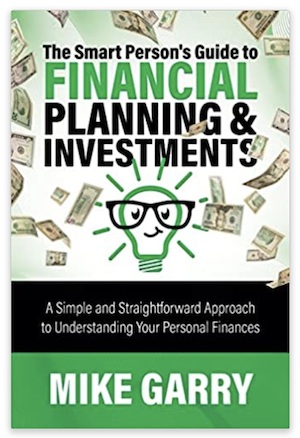The following is a guest post by Michael J. Garry, CFP®, JD/MBA, the author of two books, The Smart Person’s Guide to Financial Planning & Investments: A Simple and Straightforward Approach to Understanding Your Personal Finances and Independent Financial Planning: Your Ultimate Guide to Finding and Choosing the Right Financial Planner. If you’d like to submit a guest post to Money Q&A, be sure to check out our Guest Posting Guidelines.
There are as many different kinds of financial advice as there are financial advisors, and choosing the right person to help you reach your financial goals can be a daunting process.
One rule of thumb I think it’s always a good idea to keep in mind: follow the money. Whether you’re looking at an online personality or a brokerage firm, think about how the person advising you is making their income.
Are they selling your products (like books, webinars, or podcasts) directly? Do they earn a commission from any investment products you purchase? Or is their fee set in advance and/or based on a percentage of your assets, regardless of what they advise you to buy?
A person who makes a living by selling things is a salesperson. There’s nothing wrong with being a salesperson, but someone who directly benefits from getting you to buy specific products is not going to be the most unbiased financial advisor out there.
Even if it’s just a book or online program telling you how to get rich, think about this: is the person you’re buying the financial advice from rich because they have a sound investment strategy you couldn’t find anywhere else? Or are they rich because they do a good job of convincing people to buy their advice?
There’s no strategy for getting rich overnight other than a stroke of extraordinary luck. Building wealth for the long term is exactly that—a long-term strategy. Proper financial planning allows you to make the most of your money and achieve your individual goals.
There’s no one-size-fits-all plan that works for everyone, which is why it’s so important to identify your own needs when you sit down with an advisor. Most of us have a limited amount of money, which means we sometimes have to make hard choices about where to allocate our resources.
There are a lot of folks out there who bill themselves as financial gurus. Some of them have folksy rags-to-riches stories. Others present themselves as financial experts. Most of them make the same promise: if you follow their advice (which you usually have to pay for) you’ll get rich, too.
Some financial experts have smart things to say. But pay careful attention to how they really make money. Did they get rich through some clever investment strategy, or did they get rich by charging people for their so-called clever investment strategy?
In my experience, rich people are the people who sell high-risk investments, not the people who buy them. Full-service brokerage firms come with a similar problem. No matter how good your broker is, his or her primary job is to act as a salesman.
Brokerage firms don’t reward their employees for building their knowledge base or giving savvy advice. They reward brokers for sales—which means at the end of the day, your broker’s main focus is the firm, not you.
The advantage of working with a fee-only independent financial advisor is that we don’t take commissions. That means an independent financial advisor is concentrating on your needs, not on selling you something.
My job is to impartially assess your needs, your assets, and your goals, and work with you to develop a plan tailored to your situation. It’s not as glamorous as a promise that you’ll get rich overnight, but it’s a strategy that actually works.
If you’re interested in managing your money yourself, but you don’t have a lot of knowledge or experience, my view is that there are better ways to learn than going through a self-styled financial expert. A firm like Fidelity or TD Ameritrade is a good place to start. You can also start out with a financial planner and tell him or her upfront that one of your goals is to learn how to manage your money yourself.
If you do decide to work with a financial planner, you want to find the person who’s right for you. Financial planners are as individual as their clients—what matters is that you have a good rapport with your advisor, that they understand your situation, and that they’re skilled in the areas where you need expertise.
MICHAEL J. GARRY, CFP®, JD/MBA, is a Certified Financial Planner practitioner and a member of the National Association of Personal Financial Advisors with over twenty years of experience. Garry built his independent financial advisory firm from zero to over $150 Million in Assets Under Management (AUM) through grit and determination. Garry founded Yardley Wealth Management, LLC, using his core principles to serve his clients better. He is the author of two books, The Smart Person’s Guide to Financial Planning & Investments: A Simple and Straightforward Approach to Understanding Your Personal Finances and Independent Financial Planning: Your Ultimate Guide to Finding and Choosing the Right Financial Planner.

